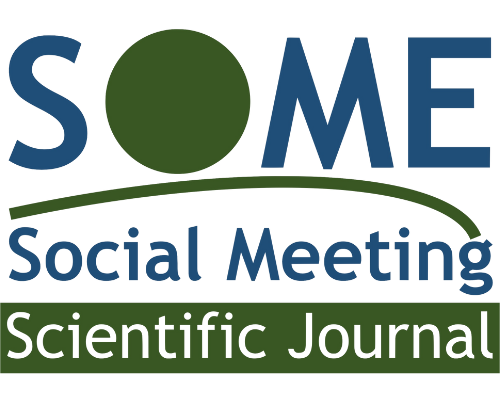Publication Ethics and Declaration of Impermissible Publication
Declaration on Ethics and Bad Publishing Practices
To publish a manuscript in the Social Meeting Scientific Journal, all the parts involved in the publication act: the authors, the magazine’s editors and the referees must comply with standards of ethical behavior. All cases of suspected plagiarism or misconduct must be reported to the magazine's editors.
I. Editors’ duties
- Do not disclose any information about a submitted manuscript, other than to the corresponding author or referees.
- Evaluate manuscripts for their intellectual content, regardless of race, sex, sexual orientation, religious beliefs, ethnic origin, nationality, or political philosophy of the authors.
- When he submits a manuscript himself, ensure that he/she gets sued by another editor.
- Editors must be responsible for everything published in their periodicals.
- Should strive to meet the needs of authors and readers.
- Adopt processes to ensure the quality of the material they publish.
- The editor must be a defender of freedom of expression.
- Must maintain the integrity of the academic register.
- Prevent business interests from compromising the periodical's intellectual and ethical standards.
- Publish corrections, clarifications, retractions and apologies whenever necessary.
- Provide information about who financed research or other academic work.
- Promote fair, impartial and timely peer review.
- Encourage the accuracy, integrity and clarity of research reports.
- Require the Editorial Board to provide an objective and impartial assessment.
- Obey the confidentiality laws in your own jurisdiction.
- Obtain written informed consent for publication in the case of people who can be recognized or identified as participating in research.
- Adopt plagiarism detection systems.
- Support authors whose copyright has been violated or who have been victims of plagiarism.
II. Referees’ duties
- Respond whether or not to accept an assessment.
- Treat papers received for analysis as confidential documents.
- Conduct and write opinions and reviews objectively.
- In case of suspected plagiarism or misconduct, report to the Editor-in-Chief.
- Deliver the opinion within the defined period.
- Evaluate the manuscripts according to ethical rigor, impartially and free from prejudice of any kind.
III. Authors’ duties
- They must write totally original work; if they use the work and/or words of other authors, they must ensure that they are properly referenced.
- They must not submit the manuscript for evaluation in any other means of publication simultaneously. Additionally, this act constitutes unethical behavior and is unacceptable.
- They must mention all publications that have been influential in determining the results of the reported work.
- When necessary, authors must obtain approval from the ethics committee informing the approval data during submission.
- Financing information must be declared including the organ’s name and case number.
- Authorship should be limited to those who have made a significant contribution to the study. At the time of submission, the e-mail addresses of all co-authors and the written authorization of all Co-Authors must be provided.
- When an author discovers a significant error in his published work, he must immediately notify the Editorial Team of the magazine and be available to correct the article.

